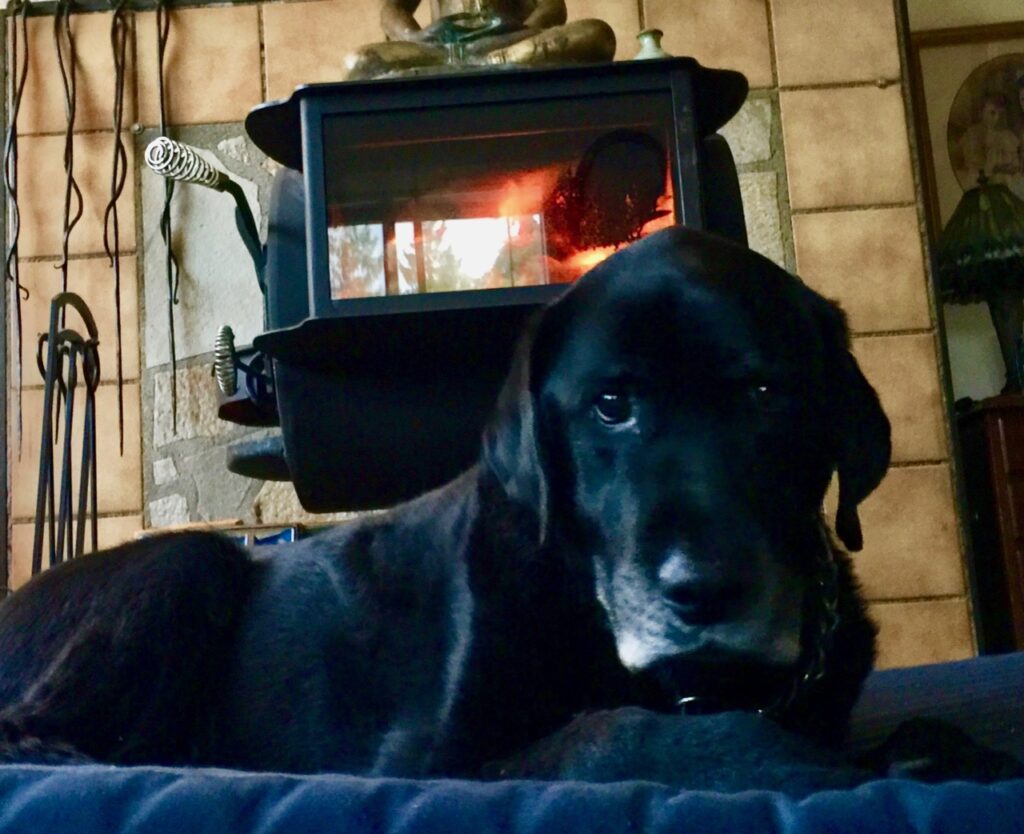 Kai-the-dog and I have turned off our TV and stored it. The evening news is too hard to hear and I can get what I need from NPR on the way to work. Now, the light in our home is no longer blue, it is orange, gentle, soft.
Kai-the-dog and I have turned off our TV and stored it. The evening news is too hard to hear and I can get what I need from NPR on the way to work. Now, the light in our home is no longer blue, it is orange, gentle, soft.
Kai-the-dog likes a woodstove. A lot. He is an old dog whose muscles, joints and bones ache. He is almost 14 years old and so, in human years, he is almost 98. Medications to numb the pain are helping but still, an egg-crate-foam bed and a very hot wood stove are a great comfort to a dog in his later years.
Kai-the-dog and I are aging together. We have lived together, gone to work together, vacationed together and weathered the storms of life together; and now we are aging together on Whidbey Island in a comfortable 600 square foot home with a small view of the water and the next island over.
We used to run together but neither of us can muster the energy what with his bad back and my old feet. We used to swim together but neither of us can manage that anymore either. Kai can wade into the ocean a bit and then sink happily to a seated position; and in water as cold as the Salish Sea, that is about all I can do as well.
Kai spends most of his time sleeping here, in front of this roaring wood stove. And I spend most of my time reading beside it.
But while Kai-the-dog sleeps, one can see, from jittering and trembling legs, that he is dreaming about running and jumping. And I think that memory – that dreaming – is important.
Kai sleeps pushed up against me, his spine running along mine. We both appreciate the warmth. And I smile when I feel those legs begin to run even while I hear his nose snoring. He is dreaming of being young.
Each of us has a choice to make each day. Will we bring warmth into the world or will we bring a chill? Will we be warm and soft with each other, or will we be cold and hard with each other? Will we go around being the cold, porcelain toilet or the warm, steel wood-stove? I guess it depends on what we ingest.
What we do with our day, how we act, how we help others – can bring the warmth of a wood stove into cold lives. And remembering that we all hold within us a younger running, swimming, leaping, laughing version of ourselves can, with the benefit of our aged wisdom, bring a wonderful energy to our communities.
So when I speak I remember Kai-the-dog. I remember those big, black eyes and his inner black-lab warmth. And before I speak I try to remember to ask myself:
“Is it kind? Is it true? Is it warm? Does it improve on the silence?

